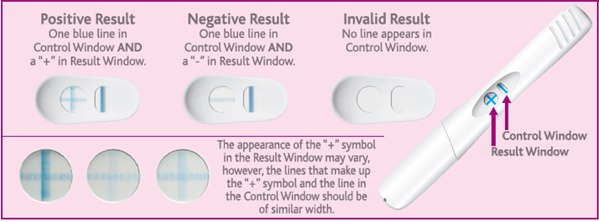
Reading Pregnancy Test Results: A Comprehensive Guide
Pregnancy tests are an essential tool for women who are trying to conceive or prevent pregnancy. By detecting the presence of human chorionic gonadotropin (hCG) in the urine or blood, pregnancy tests can provide a reliable indication of whether or not a woman is pregnant. Understanding how to read pregnancy test results accurately is crucial for making informed decisions about reproductive health.
Types of Pregnancy Tests
There are two main types of pregnancy tests:
- Urine pregnancy tests: These tests are widely available over-the-counter and can be used at home. They detect hCG in the urine, which is present in the urine of pregnant women.
- Blood pregnancy tests: These tests are performed in a laboratory setting and measure hCG levels in the blood. They are more sensitive than urine tests and can detect pregnancy earlier.
How Pregnancy Tests Work
Pregnancy tests work by detecting the presence of hCG, a hormone that is produced by the placenta after implantation of a fertilized egg in the uterus. hCG levels rise rapidly in early pregnancy, doubling every 2-3 days.
Urine pregnancy tests contain antibodies that bind to hCG in the urine. If hCG is present, a chemical reaction occurs, resulting in a visible line or symbol on the test device. Blood pregnancy tests measure the exact amount of hCG in the blood, providing a more precise result.
Interpreting Pregnancy Test Results
Positive Result:
- A positive pregnancy test result indicates that hCG has been detected, which is a strong indication of pregnancy.
- Most pregnancy tests display a positive result as a visible line or symbol, such as a plus sign (+), a smiley face, or the word "pregnant."
Negative Result:
- A negative pregnancy test result indicates that hCG has not been detected, which suggests that the woman is not pregnant.
- Negative results are typically displayed as a single line or the absence of a symbol.
Invalid Result:
- An invalid pregnancy test result occurs when the test device does not function properly or the instructions are not followed correctly.
- Invalid results may be indicated by a missing or faint control line, which is a line that appears on all valid tests to indicate that the test has worked properly.
Factors Affecting Test Accuracy
- Test sensitivity: Different pregnancy tests have varying levels of sensitivity, which means they can detect different levels of hCG. More sensitive tests can detect pregnancy earlier.
- Timing of the test: Pregnancy tests should be taken after a missed period or when pregnancy is suspected. Taking a test too early may result in a false negative.
- Urine dilution: Diluted urine can affect the accuracy of urine pregnancy tests. It is recommended to collect a urine sample first thing in the morning, when hCG levels are highest.
- Medications: Certain medications, such as fertility drugs and birth control pills, can interfere with pregnancy test results.
When to Seek Professional Advice
- If you receive a positive pregnancy test result and are not planning to become pregnant, it is important to seek professional medical advice as soon as possible.
- If you receive a negative pregnancy test result but have symptoms of pregnancy, such as missed periods, nausea, or breast tenderness, you should also seek medical advice.
- If you have any concerns about the accuracy of your pregnancy test results, it is always advisable to consult with a healthcare professional.
Additional Considerations
- Early pregnancy: Pregnancy tests may not be able to detect pregnancy very early on. If you suspect you may be pregnant but receive a negative test result, it is recommended to wait a few days and retest.
- Ectopic pregnancy: In rare cases, a positive pregnancy test result can indicate an ectopic pregnancy, where the fertilized egg implants outside the uterus. This is a medical emergency and requires immediate medical attention.
- Chemical pregnancy: A chemical pregnancy occurs when a fertilized egg implants in the uterus but fails to develop properly. This can result in a positive pregnancy test result followed by a miscarriage.
Conclusion
Reading pregnancy test results accurately is essential for making informed decisions about reproductive health. By understanding the different types of pregnancy tests, how they work, and how to interpret the results, women can empower themselves with the knowledge they need to plan their families and maintain their well-being. If you have any questions or concerns about your pregnancy test results, do not hesitate to seek professional medical advice.